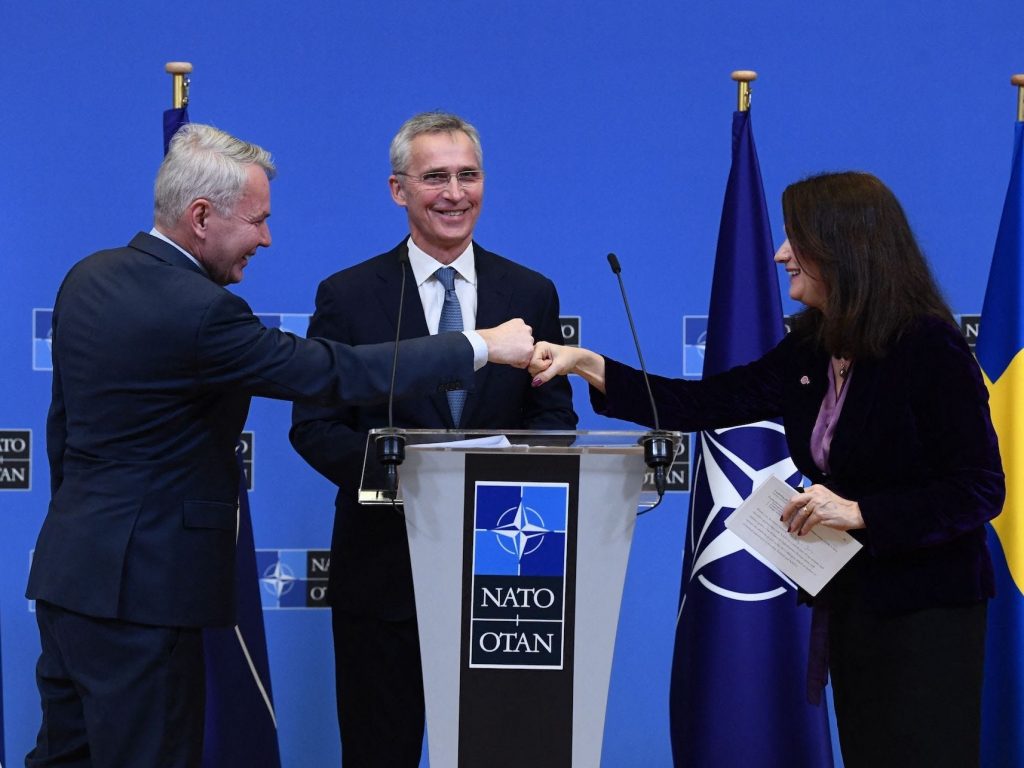- NATO members signed an agreement to move Sweden and Finland to the final stage of joining the bloc.
- Now parliaments of current NATO members will vote on their membership, and will likely approve.
- Their application was prompted by Russia's invasion of Ukraine, and is a blow to Putin.
Sweden and Finland on Tuesday advanced closer in their applications to join NATO, decisions made after Russia invaded Ukraine.
Ambassadors of the alliance's current members signed the bloc's "Accession Protocols" on Tuesday, leaving just one step left for the nations to join the Western military alliance.
The two countries now just need the unanimous support of all of NATO's current members to be able to join the alliance.
This now seems assured after NATO member Turkey dropped its objections to their joining after striking a security deal with the two nations.
It is not clear how long it would take between the signing of the Accession Protocol and Sweden and Finland's joining the bloc. Previous processes have taken two years, though NATO has said that it would fast-track the two Nordic countries' applications.
"This is a good day for Finland and Sweden. And a good day for NATO," NATO Secretary General Jens Stoltenberg said at the start of the signing ceremony on Tuesday. "With 32 nations around the table, we will be even stronger."
"And our people will be even safer as we face the biggest security crisis in decades."
NATO officials finished their talks with representatives of the two countries on Monday, marking the completion of one of the steps in the NATO membership process.
Sweden and Finland already have a close relationship with NATO, having taken part in military drills together. The military bloc see the two countries as bringing immediate benefit, especially in terms of fighter jets.
Sweden and Finland both first applied to join NATO in May, moving away from decades of neutrality after Russia invaded Ukraine.
NATO's enlargement is the opposite of what Russian President Putin wanted.
He has tried to justify his invasion of Ukraine by arguing that he was reacting to the possibility of NATO expanding eastwards.
Instead, he has prompted attempts at such an expansion.
